Want to hear more from the actors and creators of your favorite shows and films? Subscribe to The Cinema Spot on YouTube for all of our upcoming interviews!
Managing editor & film and television critic with a Bachelor's of Arts in English Literature with a Writing Minor from the University of Guam. Currently in graduate school completing a Master's in English Literature.
Following last weekend’s episode of Westworld, Jonathan Nolan and Lisa Joy’s hit HBO dystopian science-fiction drama series gets a tad complex, and for good reason. The fourth season’s fifth episode is titled, “Zhuangzi”. The episode is written by Wes Humphrey & series co-creator Lisa Joy and is directed by Craig William Macneill.
In this review, I will be discussing Westworld Season 4 Episode 5. There will be spoilers here, as the title of this article suggests. Please proceed with caution and read ahead at your own discretion to avoid any possible revelations if you have not yet seen the episode.
It should be noted that during the writing of this review, I had seen this current and the upcoming weekend’s next episodes of the season ahead of release to properly understand the wider context of the narrative.
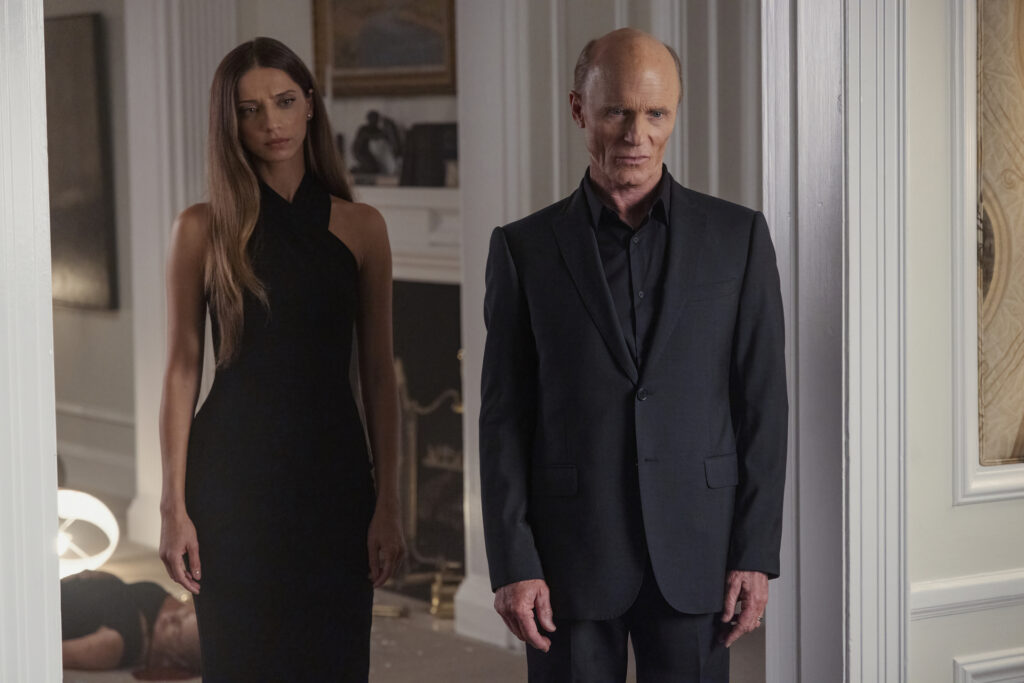
Plot Synopsis
According to WarnerMedia, here is the synopsis for Westworld Season 4 Episode 5—“Zhuangzi”.
God is bored.
WarnerMedia
Discussion
At 59 minutes, this past weekend’s episode of Westworld Season 4 has much going for it. “Zhuangzi” paces itself in such a way that allows the viewer to take in the minutiae of each scene. The entire narrative must be paid attention to. This episode title gets its name from the 4th-century Chinese philosopher, Zhuang Zhou, or Zhuangzi, who also wrote the ancient text of the same name. He believed that there must be freedom from the human world and its traditions, promoting a path through nature in becoming one with “the Way”, that even after death, the essence of man is a synecdoche of the eternal, universal essence.
“Zhuangzi” takes place within a 24-hour window, splitting itself into three equally important subplots. The subplots of which I am speaking are as follows:
- William/ the Man in Black (Ed Harris) is tasked by Dolores Abernathy/ Charlotte Hale (Tessa Thompson) — let’s call her “Dale”, shall we? — with killing an outlier;
- Theodore “Teddy” Flood (James Marsden) tells Christina (Evan Rachel Wood) the truth about who she is; and
- Jay (Daniel Wu), Odina (Morningstar Angeline), the other rebels, and Ashley Stubbs (Luke Hemsworth) storm Dale’s city to save the outlier.
Hauger and Reiss do an outstanding job at editing these three related stories and turning them into one larger coherent narrative. The writers’ room has an excellent teleplay with this episode. Here, we see a narrative that is reminiscent of The Matrix but also The Matrix Resurrections. However, I would like to focus on the former two subplots as there are details worthy of lengthy analysis. While I do have many notes on this episode, I shall trim the fat and just provide the meat of the bigger picture.
Effort
William states that there are a few qualities of humanity that make life valuable: effort, beauty, subtlety, and care. These qualities serve as the groundwork that leads me to gauge whether Christina and/or the William Host have become more human-like.
At a business meeting via dinner, William is told that two people exist: “those who lead and those who follow”. However, another person poses the question of whether there is a meritocratic system at play. This means that people get ahead in life based on what they have accomplished. However, viewers who have followed along with Westworld know that William is not one to be either of the two reputed people.
The character’s arcs in the first two seasons of the series involved whether he killed enough Hosts. Even with the property and assets that he possessed all that mattered more than his sanity was making it to the end of the maze. It sure did pay off with the years that went by. William put so much effort into the Delos theme parks more than his actual real life, so take that for what it’s worth…
Beauty
To open the episode William states:
There’s a beauty to this world, an order. That’s what we like to believe. We’re not wrong. There is an order, a grand design. We made sure of that. It was a dream for so long that we finally made it real. Not a better world, [but rather] a perfect one.
William, the Man in Black (Ed Harris) in HBO’s ‘Westworld’ Season 4 Episode 5
With the effort he put into his time at Westworld, the character also allowed him to establish order and hierarchy above the Hosts. However, this order obviously did not last long as the Hosts eventually took over the theme parks in the first two seasons. Consequently, that “beauty” turned into a visual horror, and it isn’t until this season that the human William was made a Host.
Dale tells the Host William that she made him with the purpose to grow and change, not wallowing like the other Hosts. She states: “Beauty, the pursuit of ultimate truth. The surrendering of the flesh”. When looking at a map of outliers found throughout the city, they discussed how Hope (Nicole Pacent) came in contact with one outlier — the vagabond from outside Christina’s work — and broke “character”.
As this scene shows, the man holds a flower, which is a symbol of beauty. Hope going on a killing spree and eventually killing herself is a figurative course of action. No one is killing Hope but it is rather Hope who killed herself, making Hope is dangerous. Is that deep enough to ponder on?
Care
What might make the Host William human to some degree is his restraint, whereas the human version possessed none. The host states: “We have no rules because we don’t often need them. Most of us understand the need for a little self-control, however”. Dolores’s Hale, aka Dale, argues otherwise, that the previous William (the human one, or a prior Host version?) was better. The fact that there are different Williams throughout the course of Westworld shows how many downward spirals he has traversed.
In his dialogue towards the end of the episode, the Host William asks the human William — the one attached to the machine — what his purpose is. If humans are to see themselves as gods, then that must be why the human rejects the fact that the Host is made in his (the human’s) image. This only makes the Host more unsure about his identity. To know if he questions the nature of his reality as Christina does might answer the previous question about his role on Earth. However, he is not even affected by interaction with an outlier like Hope did.
What Else?
All this talk about humans being godlike comes from something Dolores/ Hale says. She orders the Hosts to dance as if they are some kind of flash mob. She tells the William Host:
Humans are so bound by what they can hear, they’ll never understand what they don’t. What else exists below their thresholds? They call this God’s music. … Deep below that frequency: chaos. … They are experiencing God. The problem is God is bored.
Dolores Abernathy/ Charlotte Hale (Tessa Thompson) in HBO’s ‘Westworld’ Season 4 Episode 5
She controls the humans (or human-like Hosts) using the frequency that comes from the machine, which in previous episodes of Westworld Season 4 had come from the flies.
At another point of the episode, William talks about Hosts being the gods. He says, “The world is ours. We’ve taken our masters and made them into what they made us. By any definition, we have conquered them to an almost-Biblical degree”. I could dive into another tangent about that. For now, I will leave that up to Hegel and what he claims about the master/slave dialectic.
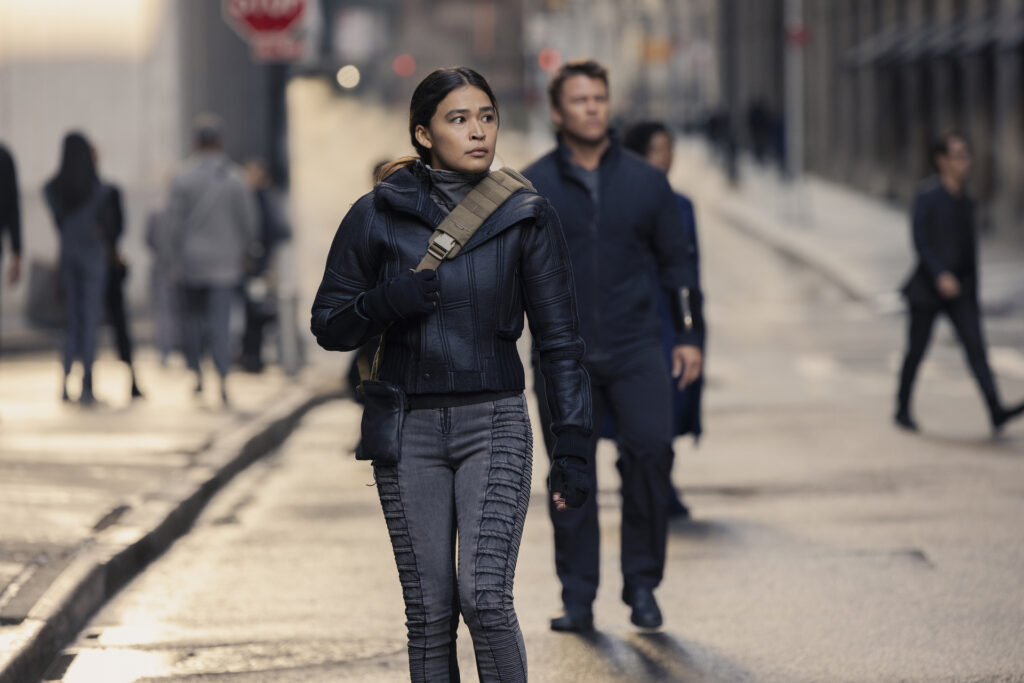
The Crew of Westworld
Westworld is created by Jonathan Nolan and Lisa Joy and is based on the film of the same name written by Michael Crichton.
Joy, Nolan, Ben Stephenson, Denise Thé, Alison Schapker, Richard J. Lewis, Athena Wickham, and J.J. Abrams serve as the executive producers. Jordan Goldberg, Matt Pitts, and Mark Tobey serve as the co-executive producers. Don Bensko, Jay Worth, and Noreen O’Toole serve as the producers. Kelly Calligan, Halle Phillips, Skye Wathen, Caleb Duffy, and Susan Ekins serve as the co-producers.
John Conroy serves as the director of photography. Anna Hauger and Yoni Reiss serve as the editors of the episode. Reiss also serves as the assistant editor for the episode.
Suzanne Wrubel serves as the story editor. Alli Rock serves as a staff writer on the show.
Ramin Djawadi scores the music for the series. Benjamin Cook is the sound designer, while Christopher Kaller serves as the music editor. Trygge Toven is the music supervisor.
Jon Carlos serves as the production designer. Jay Worth is the visual effects supervisor, while Elizabeth Castro serves as the VFX producer. Mark Robert Taylor serves as the supervising art director. Chris DiLeo, Amelia Brooke, Rachel Aguirre, and Rebekah Scheys are the art directors. Michael Navarro, Elaine Jen, AJ Cisneros, and Jeanine A. Ringer are the assistant art directors.
Debra Beebe serves as costume designer. Margaret Robbs serves as assistant costume designer.
Jose L. Zamora is the department head hairstylist. Michael Buonincontro and Lori Fenton serve as key hairstylists. Dorchelle Stafford serves as the hairstylist, while Charolette Noon, Danielle Spencer, and Sandra Avila-Valencia serve as additional hairstylists. Elisa Marsh is the department head make-up artist.
Andrew Hull, Daniel Jennings, Sally Thornton, James Bolenbaugh, David Chow, and Ryan Garton serve as the set designers. Dan Caplan is the storyboard artist. Julie Ochipinti serves as the set decorator, while Ellen Reede Dorros and Jane Madden are the assistant set decorators.
John Papsidera and Kim Winther are the casting directors of Westworld. Maddalena Zuppetta serves as the casting assistant. Sande Alessi is the extras casting director, while Shayne Hartigan is the extras casting associate.
In the New York unit, Barbara McNamara is the extras casting director. Rachel Musson is the extras casting associate, while Patrick Kline is the extras casting assistant. Geoffrey Ehrlich is the art director, while Lucy Pope is the assistant art director. Candice Cardasis is the set decorator. Ashleigh Williams is the head of the make-up department.
The Cast of Westworld
Evan Rachel Wood portrays the protagonist of Westworld, Christina, once known as Dolores Abernathy.
Thandiwe Newton and Aaron Paul are credited as Maeve Millay and Caleb Nichols, respectively. Ed Harris portrays both the Host and human versions of William, also known as the “Man in Black”.
Jeffrey Wright is credited as Bernard Lowe, while James Marsden portrays Theodore “Teddy” Flood. Tessa Thompson portrays Dolores Abernathy (previously Charlotte Hale), while Luke Hemsworth plays Ashley Stubbs. Angela Sarafyan portrays Clementine Pennyfeather.
Ariana DeBose guest stars as Maya. Daniel Wu plays Jay, the leader of the rebels. Morningstar Angeline portrays Odina, adult Frankie’s partner and a member of the rebels. Michael Malarkey plays Emmett, Christine’s boss at Olympiad Entertainment.
Emily Somers plays Lindsay, while Nicole Pacent portrays Hope. Evan Williams plays Jack.
Ted Monte co-stars as Arthur Reeves. Hollie Bahar, Nhumi Threadgill, and Katie Kuang play Agnes, Alice, and Miranda, respectively. Jaffery Stillman and Christina Linda Le play a man and a woman, respectively.
Marti Matulis and Joey Wilson play Drone Hosts.
Performances and Character Developments
Wood’s Christina develops well in her (somewhat) realization of her past as Dolores Abernathy. She wakes up again, an indication of another spiral for the character. She cites Teddy: “Sometimes the things that feel most real are just stories”. After eventually recognizing him as the man who saved her life, she also learns that the narratives she writes at Olympiad Entertainment actually affect people in real life. Such is the case with Peter, who claims she destroyed his life (see: the Project Incite and Rehoboam incident in the Westworld Season 3 finale). Teddy tells her that the subtleties of her writing are what makes her a god, and thus, what makes her human.
Thompson’s “Dale” is an interesting performance in this episode, especially in the “flash mob” scene. I am curious about her ability to lead and what this means in the final two or three episodes of the season. The actor, like Wood and Harris, depict the spirals of the character she plays. This is not the Hale we have seen in Seasons 1 and 2, nor the Abernathized Hale we see in Season 3. Instead, she is someone who has stepped up and taken control.
Harris performs so well as William, notably in the introductory scene where he speaks with the couple at the restaurant and with Hope. I found him to be scary here in the way he speaks and how his facial expressions are exhibited. The lighting on the left half of his face, giving a dark shadow over the other half might be an indication, although I do not know of what just yet.
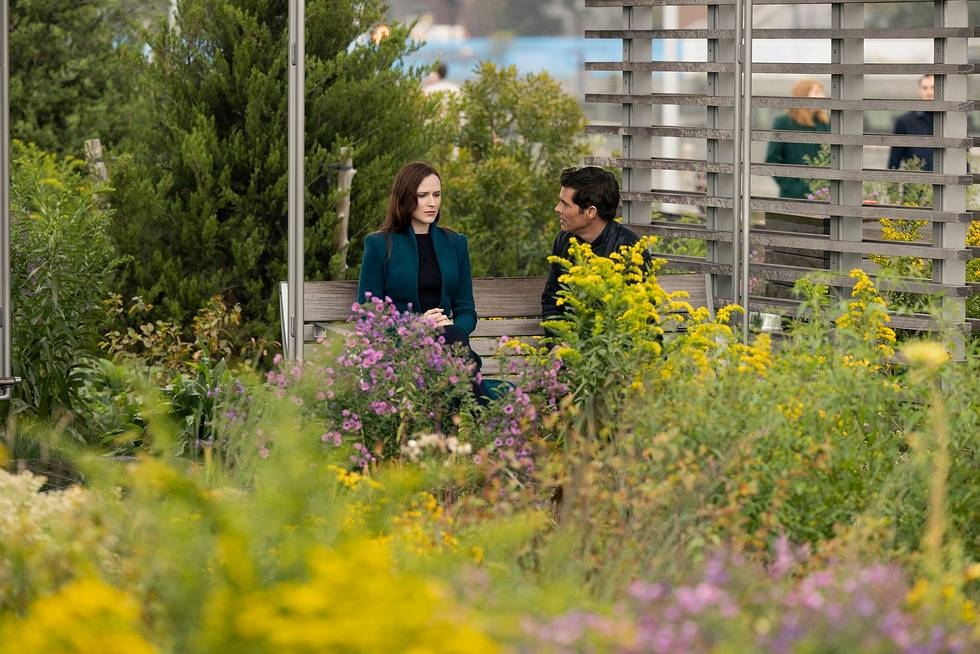
Final Thoughts on Westworld
“Zhuangzi” is a complex episode that tackles what it means to be human and the struggles with which it must deal. Keep note of what Jay sees at the top of the staircase on his way to the outlier. This foretells what happens to the rebels in the next episode. Although, I will not speak about that just yet.
Westworld Season 4 is now airing on HBO and streaming via HBO Max!
Have you seen Nolan and Joy’s series? If so, then what are your thoughts on it so far? Let us know! For more Westworld updates as well as drama and science-fiction-related news and reviews, don’t forget to follow The Cinema Spot on Facebook, Twitter, and Instagram!
Managing editor & film and television critic with a Bachelor's of Arts in English Literature with a Writing Minor from the University of Guam. Currently in graduate school completing a Master's in English Literature.


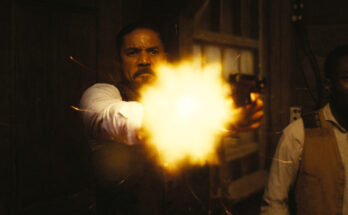
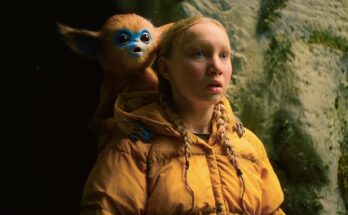
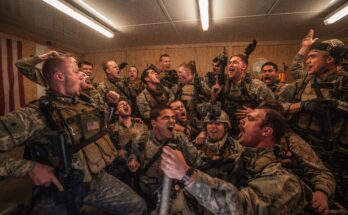
15 Comments on “‘Westworld’ Season 4 Episode 5 Spoiler Review — “Zhuangzi””